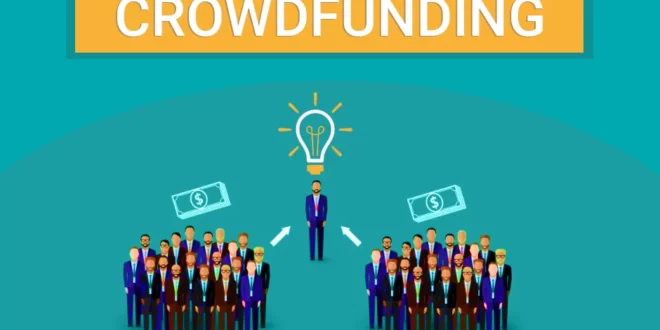Crowdfunding has become increasingly popular for individuals and businesses to raise funds in Ireland. Crowdfunding platforms offer a unique way to connect with a community of supporters willing to invest or contribute financially to various projects, causes, and startups. In this article, we will explore the best crowdfunding sites in Ireland, the associated costs, the most popular platforms, the legal framework, the different types of crowdfunding, and how to start a crowdfunding campaign in Ireland.
What is the Best Crowdfunding Site in Ireland?
Determining Ireland’s “best” crowdfunding site can be subjective and depends on your specific needs and goals. However, some of the top crowdfunding platforms in Ireland include:
- Kickstarter: Kickstarter is a globally recognized crowdfunding platform that allows creators to raise funds for creative projects such as art, technology, and design. It is accessible to Irish entrepreneurs and creators.
- Fundit: Fundit is an Ireland-based crowdfunding platform focusing on arts and culture projects. It has a strong community of backers who support artistic endeavors.
- Linked Finance: Linked Finance is Ireland’s leading peer-to-peer lending platform that connects businesses needing loans with individual lenders. While it’s not a traditional crowdfunding platform, it provides an alternative financing option for businesses.
- Spark Crowdfunding: Spark Crowdfunding, an equity crowdfunding platform in Ireland, allows businesses to raise capital by offering equity to investors. It’s suitable for startups and small businesses seeking investment.

How Much Does a Crowdfunding Platform Cost?
The cost of using a crowdfunding platform in Ireland can vary depending on the platform and the type of campaign you’re running. Here are some standard fees associated with crowdfunding:
- Platform Fees: Most crowdfunding platforms charge a fee for hosting your campaign. This fee is typically a percentage of the funds raised, ranging from 3% to 8% or more.
- Payment Processing Fees: Crowdfunding platforms also charge fees for processing payments. These fees vary depending on the payment method (e.g., credit card, PayPal) and can range from 2% to 5% or more.
- Rewards and Perks Costs: If you offer rewards or perks to backers, you’ll incur costs associated with producing and shipping those items.
- Taxes: Depending on the amount you raise and your business structure, you may be subject to taxes on the funds received.
It’s essential to carefully read the terms and conditions of your chosen crowdfunding platform to understand all associated costs.
What Are the Most Popular Crowdfunding Platforms Nowadays in Ireland?
As of my last knowledge update in September 2021, the most popular crowdfunding platforms in Ireland were Kickstarter, Fundit, Linked Finance, and Spark Crowdfunding. However, the popularity of crowdfunding media can change over time, so it’s advisable to research the current landscape and choose a platform that aligns with your project or campaign goals.

Is Crowdfunding Legal in Ireland?
Yes, crowdfunding is legal in Ireland. Crowdfunding is considered a legitimate method for individuals and businesses to raise funds for various purposes, including creative projects, business startups, charitable causes, etc. However, it’s important to note that crowdfunding activities, especially equity crowdfunding, are subject to regulatory oversight and legal requirements in Ireland. The regulatory framework for crowdfunding in Ireland may include:
- MiFID II: The Markets in Financial Instruments Directive (MiFID II) is a European Union regulation that governs financial services, including crowdfunding platforms that offer investment opportunities. Equity crowdfunding platforms, in particular, may need to comply with MiFID II regulations to protect investors and maintain market integrity.
- Central Bank of Ireland: The Central Bank of Ireland regulates certain crowdfunding activities to ensure investor protection and compliance with financial regulations. This oversight may apply to peer-to-peer lending platforms and equity crowdfunding platforms.
- Company Law: Businesses using crowdfunding for equity may need to adhere to company law and corporate governance standards, including the Companies Act 2014.
- Taxation: Depending on the nature of your crowdfunding campaign and the funds raised, you may be subject to taxation in Ireland. It’s essential to consult with tax professionals to understand your tax obligations.
It’s crucial for individuals and businesses planning to engage in crowdfunding in Ireland to research and comply with the relevant legal and regulatory requirements to ensure that their activities are conducted within the bounds of the law. Consulting legal and financial professionals with expertise in crowdfunding and Irish regulations can be beneficial to navigate the legal landscape effectively.

What Are the 4 Types of Crowdfunding?
Crowdfunding can be categorized into four primary types:
- Rewards-Based Crowdfunding: This is the most common type of crowdfunding, where backers receive rewards or perks for financial support. Platforms like Kickstarter and Fundit primarily operate on this model.
- Equity Crowdfunding: Equity crowdfunding involves raising capital by offering investors equity or shares in a company. This type is heavily regulated in Ireland and is suitable for startups and early-stage businesses.
- Peer-to-Peer Lending: Peer-to-peer lending platforms like Linked Finance connect borrowers with individual lenders, allowing companies to secure loans from a pool of investors.
- Donation-Based Crowdfunding: Backers contribute funds without expecting any financial return in donation-based crowdfunding. It is often used for charitable causes, personal emergencies, or community projects.
How Do I Start a Crowdfunding Campaign in Ireland?
Starting a crowdfunding campaign in Ireland involves several steps:
- Define Your Project: Clearly outline your project or campaign, set specific goals, and determine the required funding.
- Choose the Right Platform: Select a crowdfunding platform that aligns with your project’s nature and dreams. Consider factors such as fees, target audience, and reputation.
- Create a Compelling Campaign: Create a persuasive page with engaging content, images, and videos. Communicate your project’s story, purpose, and what backers will receive in return.
- Set Funding Goals and Rewards: Determine your funding goal and establish reward tiers for backers. Ensure the rewards are appealing and aligned with your project.
- Promote Your Campaign: Share your campaign on social media, email lists, and personal networks. Engage with backers, provide updates, and encourage sharing.
- Fulfill Your Promises: If your campaign is successful, deliver the rewards or perks to your backers as promised. Keep your supporters informed about your progress.
- Comply with Legal Requirements: Ensure your campaign complies with Irish laws and regulations, primarily if you conduct equity crowdfunding.

Final Word
Crowdfunding platforms in Ireland offer a valuable resource for entrepreneurs, artists, and businesses seeking financial support for their projects and initiatives. By choosing the right venue, understanding the associated costs, and following legal guidelines, you can harness the power of crowdfunding to bring your ideas to life and build a supportive community of backers. Remember that the crowdfunding landscape may evolve, so staying informed about the latest trends and regulations is crucial for success.
 Comeau Computing Tech Magazine 2024
Comeau Computing Tech Magazine 2024
